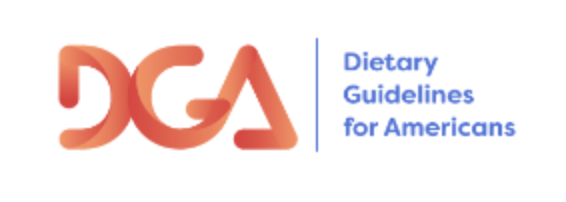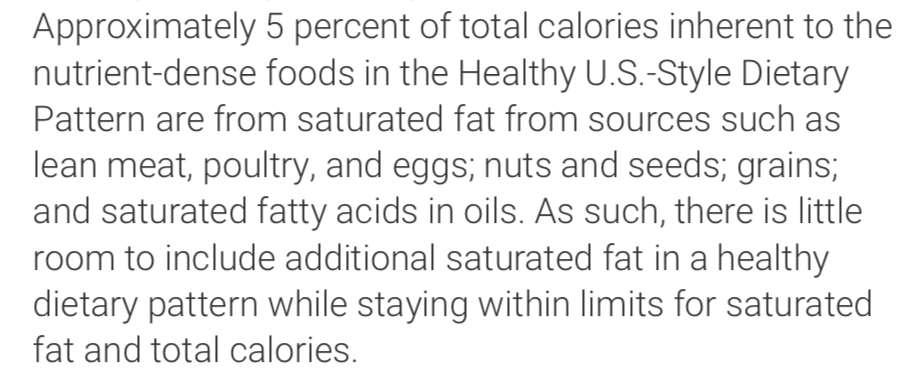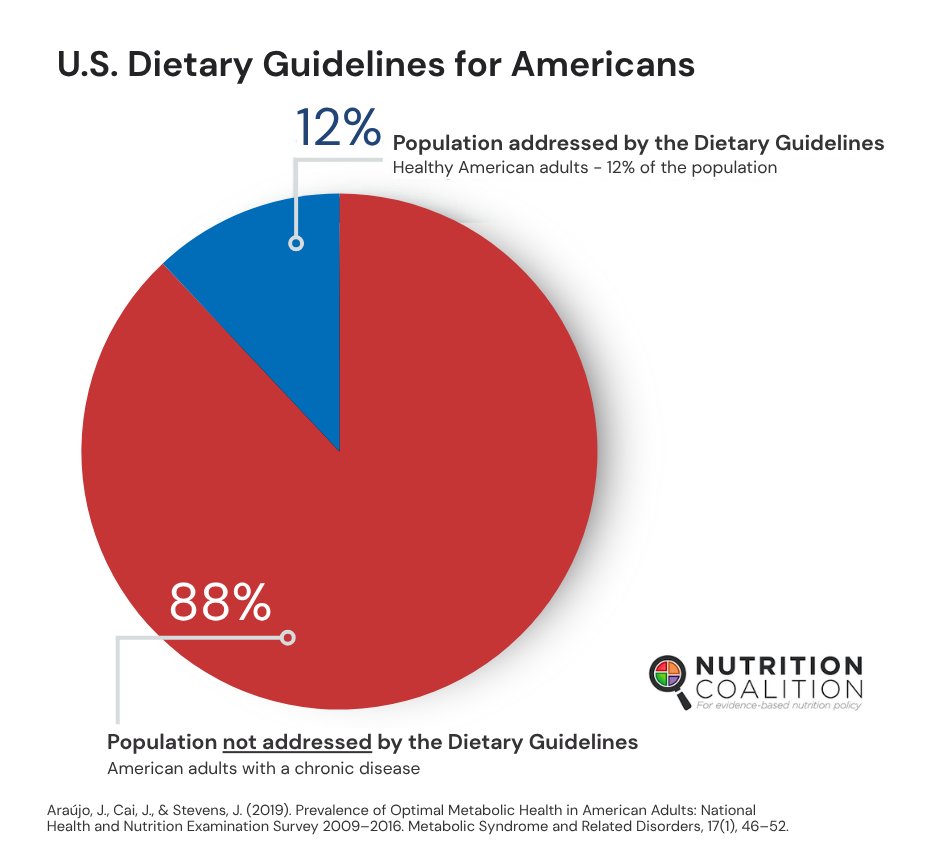Thread Re: #DietaryGuidelines (DGA), just out:
USDA-HHS Secys said they're for “all Americans,” yet the DGA is scoped ONLY for disease prevention, not treatment. This ignores the 60% of US with a diet-related disease. DGA is thus for minority of Americans who are healthy.
USDA-HHS Secys said they're for “all Americans,” yet the DGA is scoped ONLY for disease prevention, not treatment. This ignores the 60% of US with a diet-related disease. DGA is thus for minority of Americans who are healthy.

Congress' statute says the DGA must be for the "general public"--yet clearly majority of Americans now have diet-related diseases. THIS is the general public, yet Guidelines excludes them. DGA process didn't even look at studies on weight loss, when >42% of adults now w/ obesity.
Tagline of this DGA is "make every bite count," yet did not reduce 10% of calories as sugar, as recommended by the expert committee. Sugar is not just 'empty calories'--it raises blood sugar and over time high blood sugars lead to diabetes (+ increase vulnerability to Covid) 

Guidelines are also, by law, supposed reflect "scientific and medical knowledge that is current at the time" Yet its core recommendations, the "Dietary Patterns" are based on systematic reviews from 2013. Already 7 years out of date. 

Encourages people to eat "nutrient dense" foods which sounds good but seems to be the new way to condemn fat (see graphic). Fat is not nutrient dense, per se, but it is part of many foods that are naturally v. nutrient dense (milk, meats, some fruits) 

In fact, this #DietaryGuidelines don't meet nutrient goals: “Nutrients that do not meet Recommended Dietary Allowance or Adequate Intake goals include the following:" Iron, Vitamin D, Vitamin E, Choline, and Folate.
2020 Expert Report, Part D, Ch. 14, p. 10
2020 Expert Report, Part D, Ch. 14, p. 10
That is probably bc the #DietaryGuidelines are keeping their 10% cap on saturated fats, which limits the natural, whole foods where these nutrients are found. And now, sat-fat cap goes down to all children >2 even tho only 2 small trials cited (one on teens w/ genetic aberration)
And here's the kicker. Actually only 5% of saturated fats should come from food, says the new DGA. The rest should be the "saturated fats from oils," aka, highly industrialized (and inflammatory) soybean oil. Ew. 

Last decade of science on saturated fats was ignored, even though former Dietary Guidelines committee members, including the Chair of the 2005 DGA, tried multiple times to reach USDA-HHS to let them know science on sat fat has changed. They were ignored. bmj.com/content/371/bm…
In all, a sad day for science and the public health. We live in one of the sickest countries on earth, and here is the record of the #DietaryGuidelines in combatting obesity (+ diabetes, etc). Process is captive to the food & drug industries. @JoeBiden please do better. 

• • •
Missing some Tweet in this thread? You can try to
force a refresh













